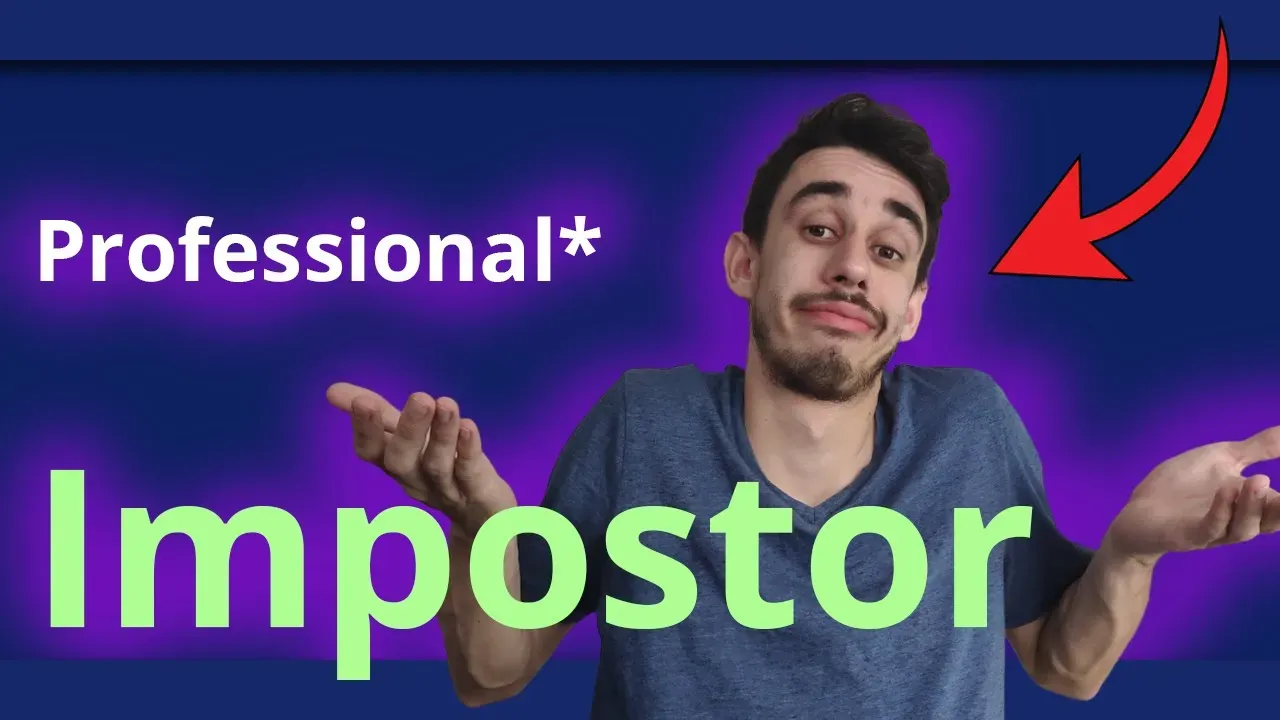· 3 min read
A message from an Impostor
Impostor Syndrome is a thing, let's tackle it from a different perspective.

Impostor syndrome is quite popular in the tech industry.
People around you seem to be super experts, while you feel like you don’t know anything and someone will eventually find out.
I’ve been there, I’m there right now. In particular in the recent year, since I also started writing articles and publishing videos, colleagues and friends keep asking me questions on things I speak about (mostly git and GitHub features).
That’s ok, I like to help whenever I can! Also, most of the time I know the answer and when I don’t it’s easy to say “Cool, I don’t know that, but I’ll be happy to figure it out together”, but this still feels weird.
I don’t really feel like I’m an expert, but when I get asked questions in the fields I’m supposed to know, I feel some pressure as if I must know the answer or if I’m a fraud.
An Impostor.
A few days ago I found out about “Professional Impostor” and the Impostor Manifesto, an idea from Kyle Simpson (getify).
The goal is to rethink the term impostor as a positive one, to define someone who keeps learning and improving.
”There are no experts, we’re just at various different stages of figuring this out.”
You can find all the details on impostor.ly, along with the talk (46 minutes) where Kyle presented it, the slides, a definition of Professional Impostor and the Impostor Manifesto.
Let me share it here:
- As empirical-leaning pragmatists, we rely more on what we can observe and do, than on the orthodox doctrines of the discipline.
- We’re not afraid to lean into doing, and learn from that doing, so we can do better the next time.
- We are quick to admit: “I don’t know… yet!”
- We don’t wait to get involved until we’ve gathered expertise or garnered accolades.
- We’re passionately curious, always asking “How?” and “Why?”
- We cycle between doing and learning and back again.
- We honor what’s come before, but we eagerly look for opportunities to do it better the next time.
- We respect all our peers as valued equals with infinite capacity, and we seek to inspire and build off their enthusiasm to expand our own.
- We spread this inclusive and proactive I’MPOSTOR message, inviting everyone we encounter to collaborate in that better future.
I really LOVED this manifesto, in particular the fourth point “We don’t wait to get involved until we’ve gathered expertise or garnered accolades”. I feel I’m not doing this at all, I’m often scared of jumping into something new just because I feel like I don’t know enough about it… hence, I never start.
I highly recommend you to listen carefully to the talk, it’s really inspiring and it’s a great way to rethink the impostor syndrome.
However, if you don’t have 46 minutes available now (you better find them at some point) you can listen to me talking about the manifesto for 8 minutes in the video below.

Hello! My name is Leonardo and as you might have noticed, I like to talk about Web Development and Open Source!
I use GitHub every day and my favourite editor is Visual Studio Code... this might influence a little bit my conent! :D
If you like what I do, you should have a look at my YouTube Channel!
Let's get in touch, feel free to send me a DM on Twitter!



